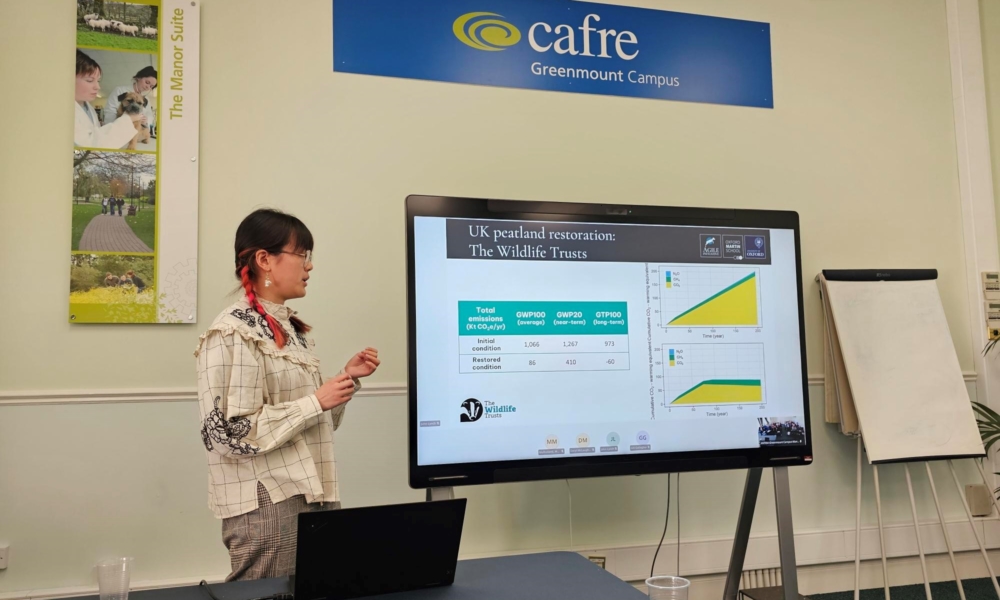Greenhouse gas uncertainties: expanding the impact of research
Associated Sprints
Recent News
- From beans to minerals: the new projects getting science into policy
- Hunger on our doorstep
- Place-based working to meet national well-being and sustainability goals

Sprint researchers shared their findings and underlying science with practitioners, policy makers and food industry representatives in Northern Ireland.
On 24-25th March, the Sprint team “How can we manage uncertainties in habitat greenhouse gas emissions” delivered discussion sessions for key audiences, including the wider Northern Ireland Executive and participants from the food industry, farming groups and rural communities. Tailored approaches were designed for each session, which were attended by participants who could discuss the research as peers. Four sessions were hosted through the College of Agriculture Food & Rural Enterprise (CAFRE) and Department of Agriculture, Environment and Rural Affairs Northern Ireland (DAERA). The team presented their research and held conversations with the participants about what the results could mean for those involved in agriculture in Northern Ireland.
On 24th March, the discussion sessions were held in the College of Agriculture Food & Rural Enterprise Greenmount Campus, with a morning session joined by agricultural advisors and technologists linked to the College, and an afternoon discussion with the Northern Ireland Carbon Farming Partnership and industry professionals.
The events provided an excellent opportunity to explain the role of agriculture in global warming, with a particular focus on the Sprint research about decision-making around carbon dioxide and methane emission reductions, and emphasised the need and potential for agricultural emission reductions in Northern Ireland. Broader conversations were also held, particularly with the CAFRE agricultural training staff, who were interested in discussing wider points around climate science and agricultural sustainability – the event was a fantastic opportunity to share knowledge and build understanding with wider communities who are often affected by climate policy decisions, but may not always have the opportunity to discuss those decisions with those involved in the research itself.
On the 25th, the Sprint researchers were hosted by DAERA, for conversations with their GHG Science Workstream, and further agriculture and science stakeholders. Here, the focus was on clarifying different frameworks for quantifying emissions. The Sprint research provided clear evidence of the value of reducing agricultural emissions and restoring peatland to contribute to climate change mitigation. They also explored some of the implications of practicalities and responsibilities in meeting climate targets, hoping to support decision-making in a clear and equitable manner.
To help navigate confusion over methane emissions, and highlight some of the main topics addressed in the research and these sessions, the sprint team have produced a ‘Frequently Asked Questions’ document on methane.
The workshops and preparation of the FAQ were supported by the Agile Initiative Community Impact Accelerator Fund. This fund was designed to enhance impact with communities affected by the findings or recommendations from Sprint research. We would like to thank CAFRE and DAERA for hosting the workshops and helping to coordinate.





